
Laizal 2.5mg Syrup
Manufacturer
Cista Medicorp
Salt Composition
Levocetirizine (2.5mg/5ml)
Key Information
Short Description
Laizal 2.5mg Syrup is an antihistamine used to treat various allergic conditions such as hay fever, conjunctivitis, and skin reactions like eczema, hives, and reactions to bites and stings.
Dosage Form
Syrup
Introduction
Laizal 2.5mg Syrup belongs to a group of medicines called antihistamines. It is used to treat various allergic conditions such as hay fever, conjunctivitis and some skin reactions such as eczema, hives, and reactions to bites and stings. It relieves watery eyes, runny nose, sneezing, and itching.
Directions for Use
Try giving the medicines at the same time each day to help you remember. Your child may feel sleepy or dizzy after each dose of Laizal 2.5mg Syrup. If this happens, make your child sit or lie down and ask them to be careful while performing tasks that require mental focus.
How it works
Laizal 2.5mg Syrup belongs to a class of medicines called antihistamines. It blocks the natural chemical substance (histamine) produced in the body during an allergic state. It also subsides (lowers) your child’s immune system’s response to these conditions thereby reducing the symptoms.
Quick Tips
Try giving the medicines at the same time each day to help you remember. Your child may feel sleepy or dizzy after each dose of Laizal 2.5mg Syrup. If this happens, make your child sit or lie down and ask them to be careful while performing tasks that require mental focus. Avoid giving Laizal 2.5mg Syrup with fatty meals and fruit juice as both can reduce the absorption of the medicine. Dry mouth can occur as a side effect of taking Laizal 2.5mg Syrup. Taking sips of water may help. Laizal 2.5mg Syrup can trigger constipation in your child. Give plenty of fluids and a fiber-rich diet to your child. Laizal 2.5mg Syrup should be avoided in children who are less than 4 years of age as there is a risk of respiratory distress.
Related Medicines
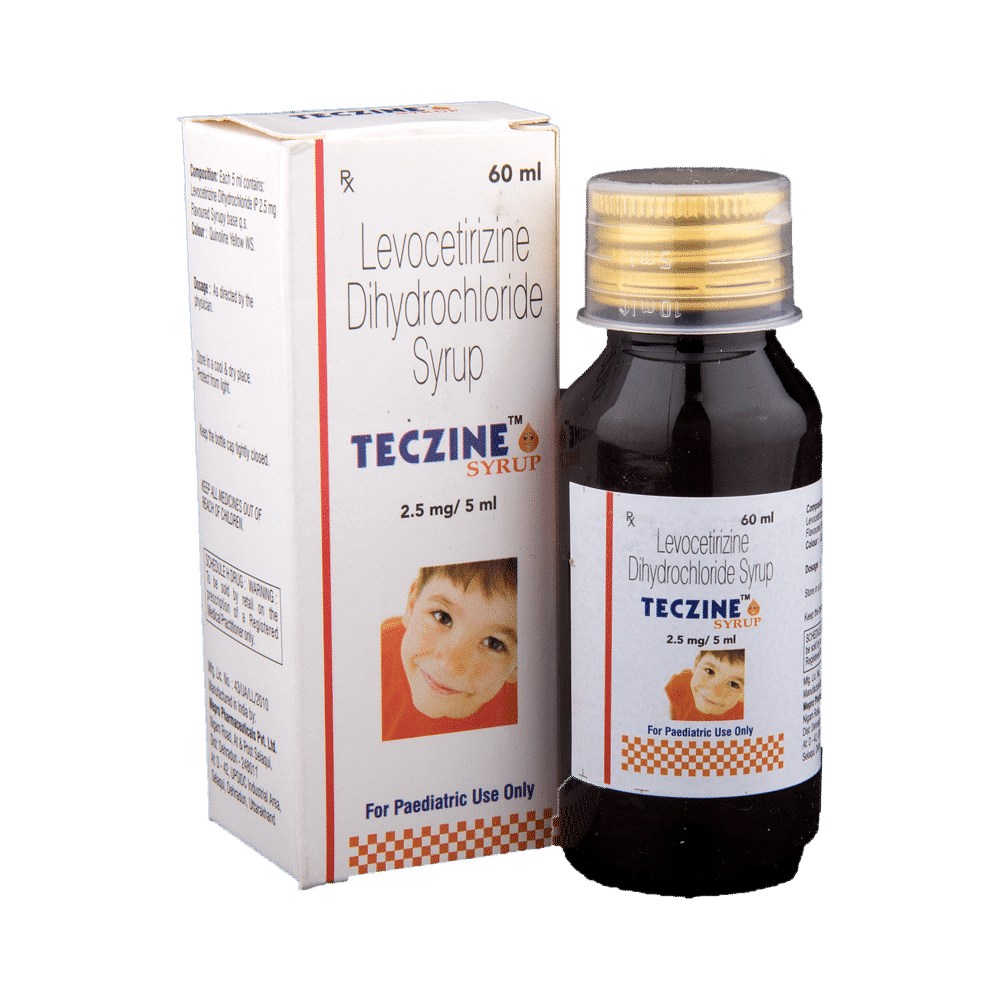
Teczine Syrup
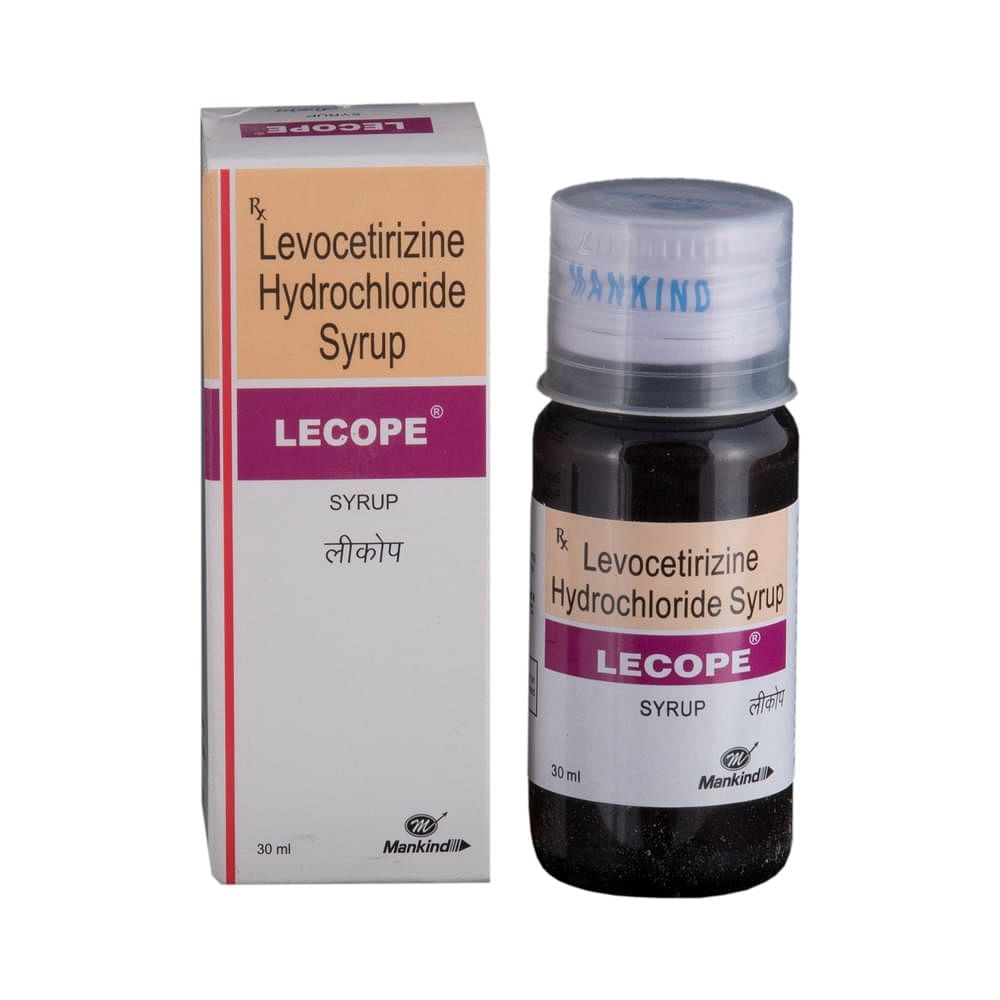
Lecope Syrup
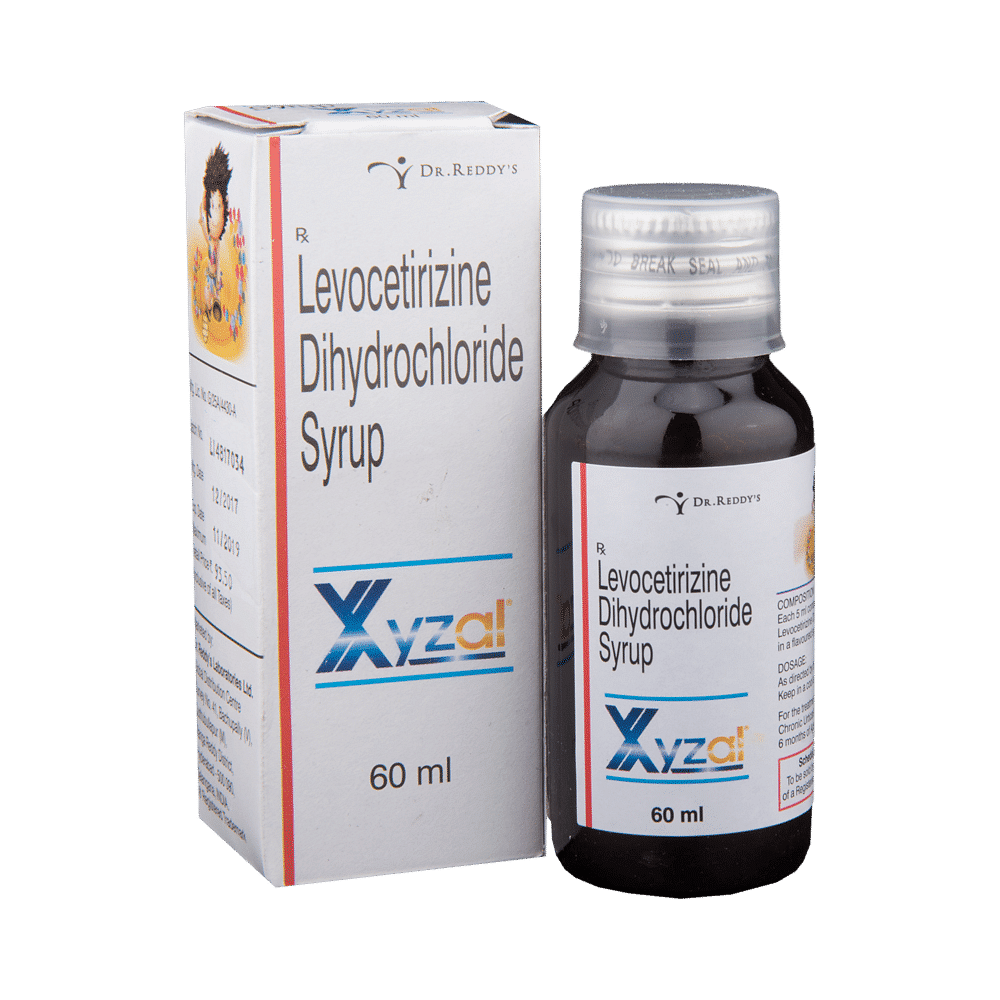
Xyzal Syrup
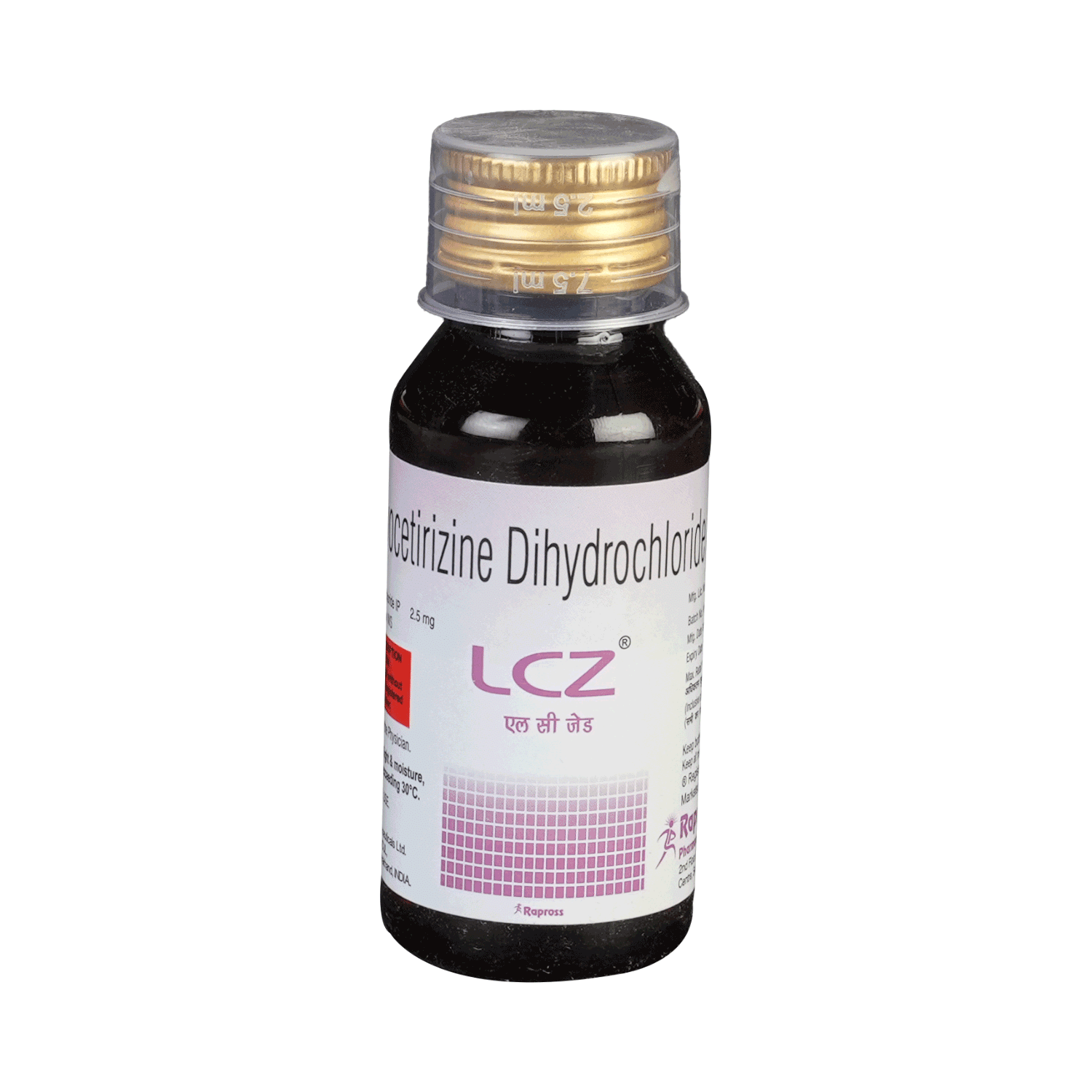
LCZ Syrup
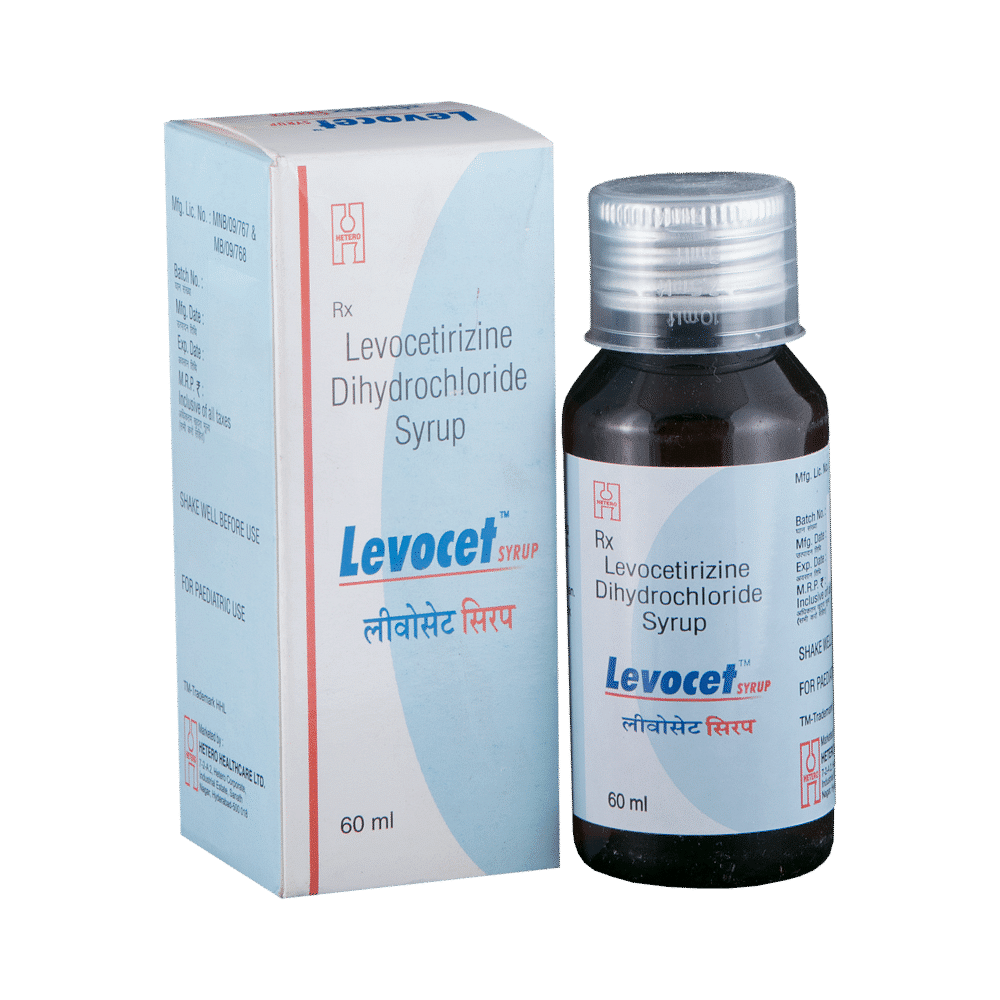
Levocet Syrup

Cetley 2.5mg Syrup

Laveta Syrup

Ronicet Syrup

LC Troy 2.5mg Syrup
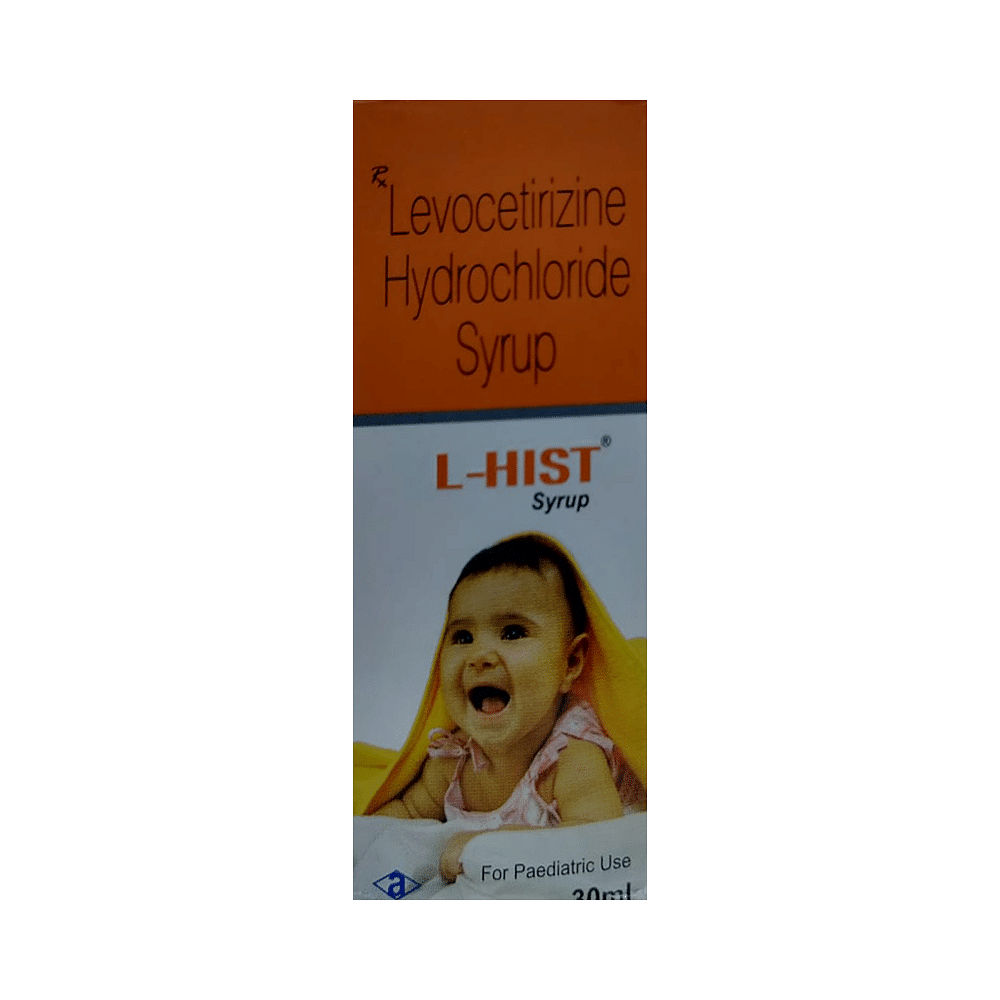
L-Hist Syrup
Frequently asked questions
My child is restless and unable to sleep properly at night. Can I give Laizal 2.5mg Syrup?
No, while this medicine can cause drowsiness as a side effect, it should not be used to induce sleep in children. Consult your child's doctor if your child has trouble sleeping as there may be an underlying medical condition.
Can other medicines be given at the same time as Laizal 2.5mg Syrup?
Laizal 2.5mg Syrup can sometimes interact with other medicines or substances. Always inform your child's doctor about any other medications your child is taking before starting Laizal 2.5mg Syrup. It is also essential to consult with your child's doctor before administering any medicine to your child.
How much Laizal 2.5mg Syrup should I give to my child?
Laizal 2.5mg Syrup dosage must be determined strictly by your child's doctor, considering their age and weight. Do not increase or decrease the dose on your own as it may lead to unwanted side effects and worsen your child's condition.
What if I give too much of Laizal 2.5mg Syrup by mistake?
Although Laizal 2.5mg Syrup is generally considered safe for children, an overdose can cause serious side effects such as seizures, hallucinations, rapid heart rate, irritability, slow breathing, and coma.
How should Laizal 2.5mg Syrup be stored?
Store Laizal 2.5mg Syrup at room temperature in a dry place, away from direct sunlight or heat. Keep all medicines out of reach and sight of children to avoid accidental ingestion.
When do I need to call my child’s doctor right away?
Consult your child's doctor at every stage for any questions or concerns. However, seek immediate medical attention if you notice any serious side effects in your child, including: allergic reactions (e.g., facial swelling, difficulty breathing), signs of liver problems (e.g., dark urine, yellowing of eyes or skin), excessive sleepiness, rapid heartbeat, hallucinations, feeling confused or hyperactive, trouble urinating, irritability, and vision changes.


